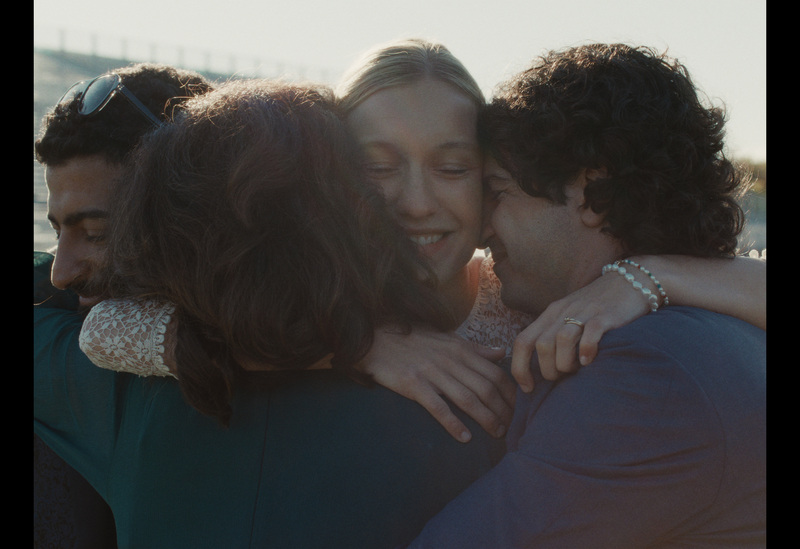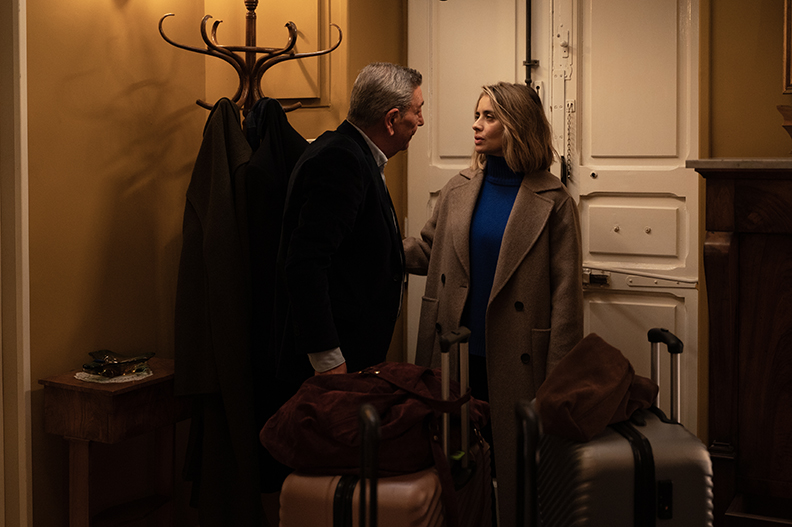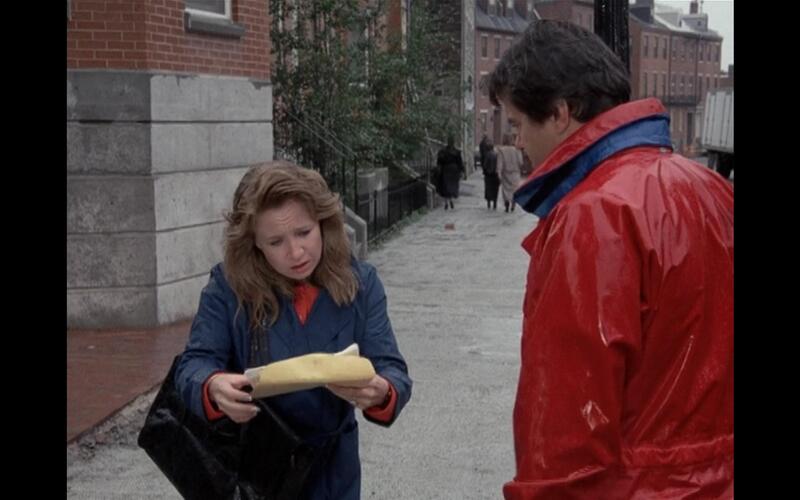
A Celebration Unraveled by Secrets and Silence
MOVIE REVIEW
Lovely Day (Mille secrets, mille dangers)
–
Genre: Drama, Comedy
Year Released: 2025
Runtime: 1h 59m
Director(s): Philippe Falardeau
Writer(s): Philippe Falardeau, with the collaboration of Alain Farah
Cast: Neil Elias, Rose-Marie Perreault, Hassan Mahbouba, Georges Khabbaz, Hiam Abou Chedid, Rose-Anne Déry, Paul Ahmarani, Natalie Tannous, Paul Doucet
Where to Watch: shown at the 2025 Toronto International Film Festival
RAVING REVIEW: Weddings are often treated on screen as moments of release, filled with laughter, romance, and chaos that eventually resolve into a neat bow. Philippe Falardeau’s LOVELY DAY has no interest in indulging that fantasy. Instead, it asks what happens when the very rituals meant to unify become suffocating, when the perfect day amplifies every crack already running through a family. What emerges is a sharp and surprisingly deep dramedy that balances humor with a painful honesty, one that explores in a structure as fractured and restless as its protagonist’s mind.
At the center is Alain, played with raw energy by Neil Elias. His wedding to Virginie (Rose-Marie Perreault) should be a day of joy. The family has gathered, including relatives whose voices will echo through the celebration long after the final toast is raised. Yet Alain can’t focus on the ceremony itself; his body betrays him with stomach pains, insomnia, and a rising tide of anxiety that has already been numbed by medication. The return of his divorced parents only heightens that tension, reopening wounds that never healed. This isn’t a story about cold feet. It’s about a man desperately trying to keep his inner collapse from ruining the one day everyone else insists must be perfect.
Falardeau adapts Alain Farah’s award-winning novel, collaborating with the author to preserve the story’s roots while transforming it into something distinct. The film thrives on its non-linear approach, weaving together pressures with memories and unresolved grief. Flashbacks shift aspect ratios, marking a difference in time but also a difference in perspective, highlighting the claustrophobia of Alain’s present versus the sprawling uncertainty of his past. That playfulness with structure is not a gimmick; it mirrors how memory and trauma interrupt the flow of the present. For Alain, past and present aren’t separate—they collide in real time, especially under the spotlight of a wedding.
The film’s sense of humor is key to its success. Anxiety, handled poorly, can easily become indulgent or oppressive on screen. Falardeau avoids that trap by emphasizing the absurdity of rituals colliding with private struggles. The presence of cousin Édouard (Hassan Mahbouba) adds another layer: he’s both comic foil and catalyst, a best man with schemes that drag Alain deeper into his own unraveling. Their interactions provide levity, yet the humor always carries an edge, reminding us how quickly laughter can slide into confrontation.
The casting choices are crucial. Falardeau made a deliberate effort to ground the film in the Lebanese-Canadian experience, and the authenticity of that choice radiates throughout. Georges Khabbaz and Hiam Abou Chedid, as Alain’s estranged parents, deliver performances grounded in lived truth, lending a weight that balances the film’s playful style. Their presence underscores the intergenerational conflicts at the film’s core—the way divorce, cultural dislocation, and unresolved anger shape children long into adulthood. Virginie, meanwhile, is more than just the bride caught in the crossfire. Perreault infuses her with patience and a strength that complicates Alain’s spiral; she’s both an anchor and a reminder of what he risks losing if he can’t hold himself together.
What makes LOVELY DAY resonate beyond its style is the emotional honesty Falardeau brings to the material. Anxiety here is not just a character quirk—it’s the film’s subject. The story examines how medication, unresolved trauma, and cultural pressures can merge into a near-constant state of dread, especially during milestones meant to define adulthood. Alain is not always likable, but he is always sympathetic, and Elias carries that contradiction with a mix of vulnerability and stubbornness. By the time his cousin confronts him with ghosts from the past, the audience feels the full weight of what it means to try and “survive” a day everyone else insists must be beautiful.
The film also suggests that rituals themselves can be oppressive, that the demand for perfection on a wedding day can suffocate rather than liberate. Falardeau never mocks tradition outright, but he refuses to romanticize it. In doing so, he taps into something universal: the way personal history seeps into public celebration, the way unresolved pain refuses to stay buried, even under flowers and vows. Some may find the structural shifts disorienting rather than illuminating. Yet even those moments serve a purpose, reflecting the way anxiety derails clarity. What could feel like excess instead becomes part of the film’s texture, reinforcing its themes rather than undermining them.
LOVELY DAY is less about whether the wedding succeeds and more about whether Alain can find a way forward without being consumed by his fears. It’s a film that balances humor with heartbreak, style with substance, and individual struggle with cultural specificity. For Falardeau, whose career has long navigated the spaces between intimate character study and broader cultural commentary, it stands as another deeply personal yet widely resonant work.
It may be a wedding movie, but it’s not the kind you’ve seen before. Instead, it’s a portrait of survival on one day; survival shouldn’t be necessary. In its refusal to simplify or sanitize, it finds something richer: the recognition that even on the happiest days, we carry our ghosts with us, and the best we can do is endure. And music plays a crucial, often understated role, but when it's meant to be the focus, you’ll know!
Please visit https://linktr.ee/overlyhonestr for more reviews.
You can follow me on Letterboxd, Instagram, Twitter, and YouTube. My social media accounts can also be found on most platforms by searching for 'Overly Honest Reviews'.
I’m always happy to hear from my readers; please don't hesitate to say hello or send me any questions about movies.
[photo courtesy of MICRO_SCOPE]
DISCLAIMER:
At Overly Honest Movie Reviews, we value honesty and transparency. Occasionally, we receive complimentary items for review, including DVDs, Blu-rays, CDs, Vinyl Records, Books, and more. We assure you that these arrangements do not influence our reviews, as we are committed to providing unbiased and sincere evaluations. We aim to help you make informed entertainment choices regardless of our relationship with distributors or producers.
Amazon Affiliate Links:
Additionally, this site contains Amazon affiliate links. If you purchase through these links, we may receive a commission. This affiliate arrangement does not affect our commitment to honest reviews and helps support our site. We appreciate your trust and support in navigating these links.



Average Rating